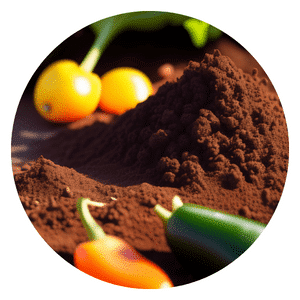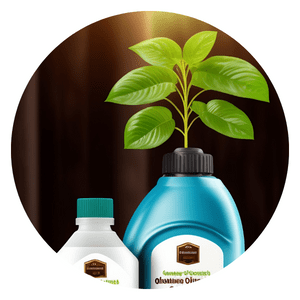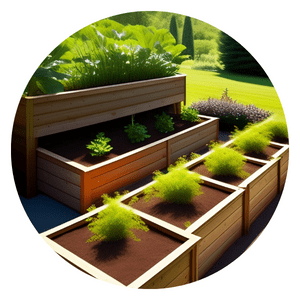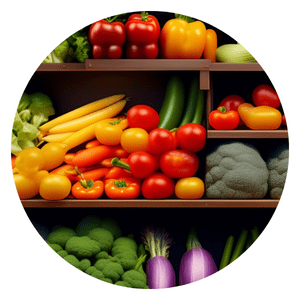Top Vegetables to Grow in Massachusetts
Massachusetts, with its diverse climate and rich agricultural history, offers an ideal environment for growing a wide variety of vegetables.
From the cool coastal areas to the warmer inland regions, this New England state provides ample opportunities for gardeners to cultivate their own fresh produce.
Whether you are an experienced gardener or a novice looking to start your vegetable patch, understanding which vegetables thrive in Massachusetts’ specific climate is essential for a successful harvest.
In this article, we will explore some of the top vegetables that flourish in Massachusetts’ ideal climate and provide tips on how to grow them effectively.

Table of Contents
Tomatoes
One of the top vegetables to grow in Massachusetts’ ideal climate is tomatoes.
With warm summers and plenty of sunlight, this state provides the perfect conditions for tomato plants to thrive.
Gardeners in Massachusetts have long appreciated the bountiful harvest that these plants can produce.
When it comes to growing tomatoes in Massachusetts, many gardeners opt for heirloom varieties. These unique tomato cultivars offer a range of flavors that you simply cannot find in traditional store-bought tomatoes.
From sweet and tangy to rich and savory, there is something for every palate when it comes to heirloom tomatoes.
Plus, their vibrant colors and unusual shapes add visual interest to any garden or plate.
Whether you are a seasoned gardener or just starting out, consider adding tomatoes to your Massachusetts garden this year.
By choosing heirloom varieties, you can experience the joy of growing your own food while also enjoying an array of delicious flavors that will elevate your meals throughout the summer and beyond.
Peppers
Peppers are a fantastic vegetable to grow in Massachusetts due to the state’s warm summers.
Whether you enjoy the sweet and vibrant taste of bell peppers or prefer the fiery kick of chili peppers, both varieties thrive in this ideal climate.
Sweet bell peppers, with their crisp texture and refreshing flavor, are a popular choice among gardeners. They come in various colors such as red, yellow, and green.
Bell peppers are extremely versatile and can be used in a variety of dishes ranging from salads to stir-fries.
With proper care and attention, these plants can produce an abundant harvest throughout the summer months.
On the other hand, if you crave some heat in your meals, chili peppers are an excellent addition to your garden. From jalapeños to habaneros, there is a wide range of spicy pepper options available for cultivation.
Spicy chili peppers not only add a fiery flavor to dishes but also provide numerous health benefits due to their high content of vitamins A and C.
Growing these hot varieties in Massachusetts’ warm climate allows them to flourish and develop intense flavors that will elevate your culinary creations.
In conclusion, whether you lean towards sweet bell peppers or spicy chili peppers, both types thrive during Massachusetts’ warm summers.
By adding these vibrant vegetables to your garden, you can enjoy fresh produce all season long while enhancing the flavors of your favorite dishes with homegrown ingredients.
Lettuce and Salad Greens
Lettuce and salad greens thrive in cool springs and falls, making them ideal vegetables to grow in Massachusetts’ climate.
The crisp and refreshing qualities of these greens make them a popular choice for salads, sandwiches, and wraps.
Lettuce varieties such as romaine, butterhead, and leaf lettuce can be grown successfully during these seasons.
Arugula is another salad green that flourishes in cooler temperatures.
Its peppery flavor adds a unique twist to salads and can also be used as a topping for pizzas or added to pasta dishes.
Spinach is yet another green that enjoys the mild weather conditions of spring and fall.
Packed with nutrients like iron and vitamins A and C, spinach is not only delicious but also highly nutritious.
In addition to their taste and nutritional benefits, growing lettuce and salad greens at home allows you to have access to fresh produce throughout the season.
Whether you have a large backyard garden or just a few pots on your balcony, you can easily cultivate these greens using various methods such as direct sowing or starting seeds indoors before transplanting them outside.
With the right care and attention, you’ll soon be enjoying your own crisp and refreshing salads straight from your garden!
In Massachusetts' fertile lands, I sow, Vegetables with flavors that delight and glow. First, kale, a hearty leafy green, Packed with nutrients to keep us keen. Then, juicy tomatoes, vibrant and red, Are perfect for salads or salsa spread. Bright zucchini grows with abundance and cheer, While crisp cucumbers quench the summer's sear. Bell peppers add colors to enchant our sight, These are the top veggies that bring pure delight.
Chappy The Gardener
Cucumbers
With an ideal climate for cucumber cultivation, Massachusetts gardeners have the perfect opportunity to grow this versatile and refreshing vegetable in their backyard gardens.
Cucumbers not only thrive in warm weather but also require full sun exposure to ensure optimal growth and productivity.
The warm temperatures of Massachusetts summers provide cucumbers with the necessary heat they need to grow quickly. This fast growth rate makes them an excellent choice for gardeners who want a bountiful harvest within a short period.
Additionally, cucumbers are known for their ability to adapt well to different growing conditions, making them suitable for various areas across the state.
Moreover, cucumbers’ love for warmth extends beyond just temperature requirements; they also appreciate plenty of sunlight.
The long days of sunshine during Massachusetts summers guarantee that these vegetables receive ample light exposure throughout the day. This abundant sunlight promotes photosynthesis and helps cucumbers produce energy needed for growth and fruit development.
Overall, if you are looking to cultivate a vegetable that thrives in the warm temperatures of Massachusetts summers, cucumbers should be at the top of your list.
Their fast-growing nature and requirement for full sun make them an excellent addition to any backyard garden in this region. Enjoy fresh cucumbers straight from your own harvest all summer long!
Zucchini
Zucchini, known for its abundant production, thrives in Massachusetts’ warm climate.
With its sprawling vines and large leaves, zucchini plants can quickly take over a garden space.
However, this rapid growth is also what makes it an ideal vegetable to grow in the state’s ideal climate.
Not only does zucchini thrive in the warm temperatures of Massachusetts summers, but it also requires plenty of sunlight to reach its full potential.
The long growing season in the state provides ample opportunity for zucchini plants to soak up the sun and produce a bountiful harvest.
Gardeners in Massachusetts can expect to see their zucchini plants flourish and yield an abundance of this versatile vegetable.
In addition to its ability to thrive in warm climates, zucchini is also well-suited for growing in Massachusetts due to its ability to adapt to different soil types.
Whether you have sandy or loamy soil, as long as it is rich and well-draining with a pH level between 6 and 7, your zucchini plants should be able to establish strong roots and grow vigorously. This adaptability allows gardeners across the state to enjoy successful zucchini harvests and incorporate this nutritious vegetable into their summer meals.
Beans
Green beans and snap peas are two vegetables that thrive during the summer months in Massachusetts’ ideal climate.
These legumes are known for their vigorous growth, making them popular choices among home gardeners.
Green beans, also known as string beans, are a staple in many gardens due to their versatility and ease of cultivation. They can be grown vertically on trellises or allowed to spread horizontally across the ground.
Snap peas, on the other hand, are a type of edible-podded pea that combines both sweetness and crunchiness in one delightful package. These peas grow vigorously during the summer months, producing an abundance of pods that can be enjoyed both raw or cooked.
Like green beans, snap peas can also be trained to climb up trellises or left to sprawl across the ground.
Both green beans and snap peas require well-drained soil and full sun exposure to ensure optimal growth and yield.
Regular watering is essential for these vegetables as they prefer consistently moist soil but should not be waterlogged.
It is important to keep an eye out for common pests such as aphids and caterpillars that may affect the health of these crops.
With proper care and attention, home gardeners in Massachusetts can enjoy bountiful harvests of fresh green beans and snap peas throughout the summer season.
Broccoli
This nutritious vegetable thrives in cooler weather conditions, as it is a cold-tolerant crop that can withstand light frosts.
The moderate climate of Massachusetts provides the perfect environment for broccoli cultivation, allowing farmers and gardeners alike to enjoy bumper crops.
The cool temperatures during fall and spring seasons help in providing optimal growing conditions for broccoli plants. These lower temperatures slow down the growth rate of the plant, resulting in larger heads with a more desirable taste and texture.
Furthermore, this extended growing season allows for multiple harvests throughout the year, ensuring a steady supply of fresh broccoli.
In addition to temperature requirements, another reason why Massachusetts is well-suited for growing broccoli is its fertile soil composition.
The state boasts nutrient-rich soils that are essential for producing healthy and abundant crops.
Broccoli plants require well-drained soil with ample organic matter content to thrive, which makes Massachusetts an ideal location due to its naturally fertile soil composition.
Overall, with its cooler temperatures during fall and spring seasons and nutrient-rich soils, Massachusetts offers favorable conditions for cultivating this versatile vegetable.
Whether grown on small backyard plots or large commercial farms, broccoli flourishes abundantly in the state’s ideal climate – making it one of the top vegetables to grow in Massachusetts.
Carrots
Carrots are one of the top vegetables to grow in Massachusetts due to the state’s ideal climate. These root vegetables thrive in well-draining soil, which is abundant in many areas of Massachusetts.
The sandy loam soil found throughout the state provides excellent drainage for carrot roots, preventing rot and disease.
Additionally, the cool and moderate temperatures in Massachusetts create an optimal environment for carrot growth.
Carrots prefer temperatures between 60-70 degrees Fahrenheit, which are typical during the spring and fall seasons in Massachusetts. This favorable temperature range allows carrots to develop their sweet flavor while maintaining a crisp texture.
Furthermore, growing carrots in Massachusetts allows gardeners to enjoy a wide variety of colors and shapes.
While orange is the most common color for carrots, there are also purple, yellow, red, and white varieties available to cultivate.
Different shapes include cylindrical or finger-like options depending on personal preference.
Growing carrots in Massachusetts’ well-draining soil offers numerous benefits due to its optimal climate conditions.
Whether you prefer traditional orange carrots or want to experiment with different colors and shapes, these versatile root vegetables will flourish in your garden and provide a delicious addition to your meals throughout the year.
Beets
Beets are not only hardy, but they also offer a myriad of health benefits.
They are packed with essential nutrients like vitamin C, fiber, and folate. These nutrients promote immune function, aid in digestion, and support healthy brain development.
Additionally, beets contain high levels of antioxidants that help reduce inflammation and lower the risk of chronic diseases such as heart disease and certain types of cancer.
When it comes to planting beets in Massachusetts’ ideal climate, early spring and fall are the best times to do so. These vegetables thrive in cooler temperatures ranging from 50°F to 75°F (10°C to 24°C).
Planting beets during these seasons ensures optimal growth as they can withstand light frosts.
However, it is important to note that beets prefer well-drained soil with a pH level between 6.0 and 7.5 for optimal growth.
Regular watering is necessary to keep the soil moist but not waterlogged.
In conclusion, if you’re looking for a versatile vegetable that can withstand cooler temperatures while offering numerous health benefits, then beets should definitely find their place in your garden in Massachusetts’ ideal climate.
With their ability to tolerate light frosts and their rich nutritional profile, growing beets during early spring or fall can provide you with a bountiful harvest of deliciously vibrant roots that will elevate both your culinary creations and your overall well-being.
Kale
With its ability to withstand frost and even snow, kale is an excellent vegetable choice for Massachusetts gardeners. This hardy plant can be grown almost year-round in the state, offering a constant supply of fresh greens.
Not only does kale excel in colder weather, but it also offers exceptional nutritional value.
Packed with vitamins A, C, and K, as well as minerals like iron and calcium, this superfood is a powerhouse of nutrients.
It is also rich in antioxidants that help protect against inflammation and chronic diseases.
When growing kale in Massachusetts’ ideal climate, it is important to choose the right variety for optimal results.
Some popular choices include curly kale with its ruffled leaves or lacinato kale with its dark green elongated leaves.
By providing adequate water and protection from pests like aphids or cabbage worms, gardeners can enjoy a bountiful harvest of this versatile leafy green throughout the seasons.
Swiss Chard
Swiss chard is a leafy green vegetable that thrives in the ideal climate of Massachusetts.
It is known for its vibrant colors, including deep red, bright yellow, and rich green. This versatile green not only adds beauty to your garden but also provides a delicious addition to your meals.
One of the great things about Swiss chard is its ease of cultivation. It can be grown from seeds or transplants and requires minimal care throughout the growing season.
The plant prefers well-drained soil and full sun exposure but can tolerate partial shade as well.
Regular watering and occasional fertilization are usually sufficient to keep it healthy and thriving.
In addition to being low-maintenance, Swiss chard offers an array of culinary possibilities.
Its leaves can be harvested at any stage of growth and used in salads or cooked dishes like stir-fries, soups, or sautés.
The stalks are equally versatile and can be cooked separately or alongside the leaves for added texture and flavor.
With its easy cultivation and various uses in the kitchen, Swiss chard is undoubtedly a top choice for any Massachusetts gardener looking for beautiful greens that pack a nutritional punch.
Radishes
Radishes are a popular choice for early season planting in Massachusetts due to their quick maturity.
With an ideal climate, these root vegetables can be harvested within just a few weeks from sowing the seeds. Their rapid growth makes them perfect for gardeners looking for a quick yield and wanting to get a jumpstart on their vegetable garden.
Apart from their fast-growing nature, radishes offer numerous other benefits as well. They are low maintenance plants that require minimal care, making them suitable for both novice and experienced gardeners alike.
Additionally, radishes can be grown in small spaces, such as containers or raised beds, making them an excellent option for those with limited gardening areas.
Furthermore, radishes do not only provide crunchy texture and a peppery flavor but also offer various health benefits. Packed with vitamins C and K, folate, and fiber, they are a nutritious addition to any meal.
Whether sliced into salads or used as garnish on sandwiches or tacos, the versatility of radishes is another reason why they are favored by many Massachusetts gardeners seeking early-season vegetables.
Summer Squash
In Massachusetts, where warm summers are the norm, summer squash varieties like yellow squash and pattypan squash thrive exceptionally well. These vegetables are not only delicious but also offer numerous health benefits.
Yellow squash, with its vibrant color and mild flavor, is a versatile vegetable that can be enjoyed in various dishes such as stir-fries, salads, or even grilled on the barbecue.
On the other hand, pattypan squash is known for its unique shape resembling a flying saucer and has a slightly sweeter taste compared to yellow squash.
One of the advantages of growing summer squash in Massachusetts’ ideal climate is their ability to produce an abundant harvest throughout the season.
Both yellow squash and pattypan squash plants are highly productive, often providing gardeners with an ample supply of fresh produce to enjoy all summer long.
Additionally, these varieties are relatively easy to grow and maintain since they require minimal care and attention.
Moreover, summer squashes boast impressive nutritional profiles. They are low in calories while being packed with essential vitamins and minerals such as vitamin C, potassium, magnesium, and folate.
Incorporating these vegetables into your diet can contribute to improved digestion due to their high fiber content.
Furthermore, they contain antioxidants that help protect against chronic diseases by neutralizing harmful free radicals in the body.
Onions
Onions are a versatile vegetable that can be grown successfully in the ideal climate of Massachusetts.
They are typically planted in early spring, once the soil is workable and temperatures have warmed up.
Onions require well-drained soil with plenty of organic matter to grow properly.
It is important to space the onion sets or seedlings adequately to allow for proper bulb development.
Once planted, onions need consistent moisture throughout their growing period, so regular watering is essential.
As summer progresses, onions will begin to develop their bulbs underground. It is important not to overwater at this stage as it can lead to rotting and spoilage.
In late summer, when the foliage starts turning yellow and falling over, it is a sign that the onions are ready for harvest.
The flavorful addition that onions bring to dishes makes them a popular choice among home gardeners in Massachusetts.
Whether used raw in salads or cooked into stews and soups, onions add depth and aroma to various culinary creations.
With proper care and attention during the growing season, you can enjoy a bountiful harvest of fresh, flavorful onions straight from your own backyard in late summer.
Herbs
In addition to the ideal climate for growing vegetables, Massachusetts also provides a favorable environment for cultivating a wide variety of herbs.
From basil to oregano, thyme to rosemary, herb enthusiasts in Massachusetts can enjoy a bountiful harvest all year round. These herbs not only add flavor and aroma to our favorite dishes but also offer numerous health benefits.
Basil, for example, is rich in antioxidants and has anti-inflammatory properties that can help improve digestion and boost the immune system.
Oregano, on the other hand, is known for its antimicrobial properties and is often used as a natural remedy for respiratory issues like coughs and colds.
Thyme is another versatile herb that can be used fresh or dried in various recipes.
It contains essential oils with antifungal and antibacterial properties that aid in digestion and support overall wellness.
Lastly, rosemary is an aromatic herb with a distinct pine-like fragrance that adds depth of flavor to meats and vegetables. It also has antioxidant properties that may help reduce inflammation.
Whether you have limited garden space or are trying your hand at container gardening on your balcony or patio, growing these herbs in Massachusetts’ ideal climate promises an enjoyable experience full of culinary experimentation and health benefits.
In conclusion, Massachusetts offers a wide range of vegetables that are perfect for growing in its climate and soil conditions.
From the hardy kale and cabbage to the flavorful tomatoes and peppers, there is something for every gardener to enjoy.
By selecting the right varieties and providing proper care, it is possible to have a bountiful harvest throughout the growing season.
Whether you have a small backyard garden or access to community plots, growing your own vegetables in Massachusetts can be a rewarding experience.
So why not give it a try and start planting some of these top vegetables today?
Click To Grow
Helps Us Grow – Share If You Like
















